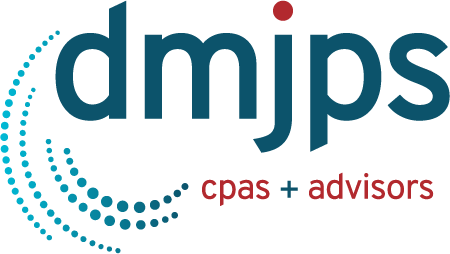Budgeting and Forecasting for Your Business | DMJPS PLLC

As the business environment changes or if you are now considering making changes to your business, a budget and forecast allow you to feel more informed and understand the financial impact of your decisions, even in the midst of evolving circumstances.
What is the Difference Between a Budget and a Forecast?
The terms are not interchangeable. As management tools, they have different purposes. A budget is a challenging but obtainable goal. Once in place, budgets are typically static for one year and not meant to be revised.
A forecast is a projection of results that is revised monthly or quarterly based on actual results. Forecasts typically use a budget as a starting point, so the start-of-year budget and forecast are the same. Forecasts can extend beyond the current fiscal year. In a mature process, they can serve as the starting point for the next year’s budget.
Strategic and Tactical Thinking
Budgeting and forecasting drive strategic and tactical thinking. You need to consider not just where you want your business to go, but how you plan to get there. The budgeting and forecasting processes can:
- Assist with purchasing decisions (e.g., marketing, equipment, and personnel)
- Deepen the understanding of cost drivers, such as fixed vs. variable.
- Encourage proactive planning, answering questions such as “Where am I going?” vs. “Where have I been?” By being proactive, your business can take advantage of opportunities and act nimbly when market conditions change rather than missing opportunities or managing the impact of unforeseen events. You can consider what is currently trending in the industry and whether you can build it into your plan.
- Aid in decision-making, such as the timing of purchases. A cash flow budget is essential when you need to consider:
- When should I make changes to my investments?
- Do I need to reconsider my marketing approach?
- Making hiring and layoff decisions, and staff outsourcing decisions?
- Whether to buy vs. lease (copier, equipment, etc.)
- When is the right time to launch a new product line or discontinue an existing product line?
- When is the right time for the sale or purchase of a business?
Budgeting and forecasting holds everyone in your business accountable to the overall goal(s) of your organization. Actual results should be compared to the budget regularly, as opposed to waiting until year-end. By doing so, you and your team can make adjustments throughout the year, modifying your actions to bring results back in line with organizational goals. A visual reference in the form of a formal budget will keep your goals top-of-mind and make the organization more likely to stay on track than merely having a verbal or implied goal.
Who Should Budget and Forecast?
No business is too small to benefit from the budget and forecasting process; in fact, often small businesses benefit the most. All business owners should be involved in and own the budget. To have the best quality and commitment, obtain input from managers, sales, office assistants, bookkeepers and staff at all levels.
Do you have questions about budgeting and forecasting, or other outsourced accounting solutions and services? Please contact Scott Wells in our Strategic Accounting and Outsourced Accounting Department at 336-553-2316 or scott.wells@dmjps.com.

